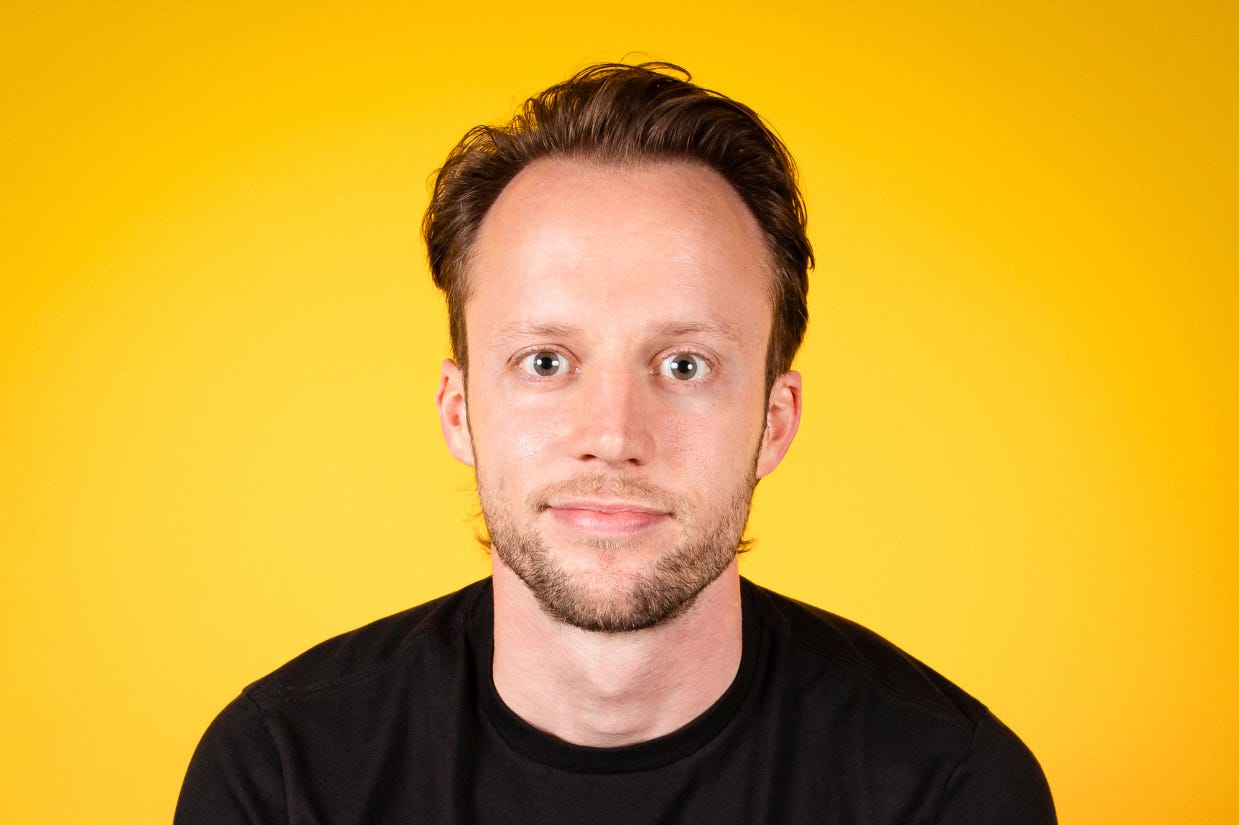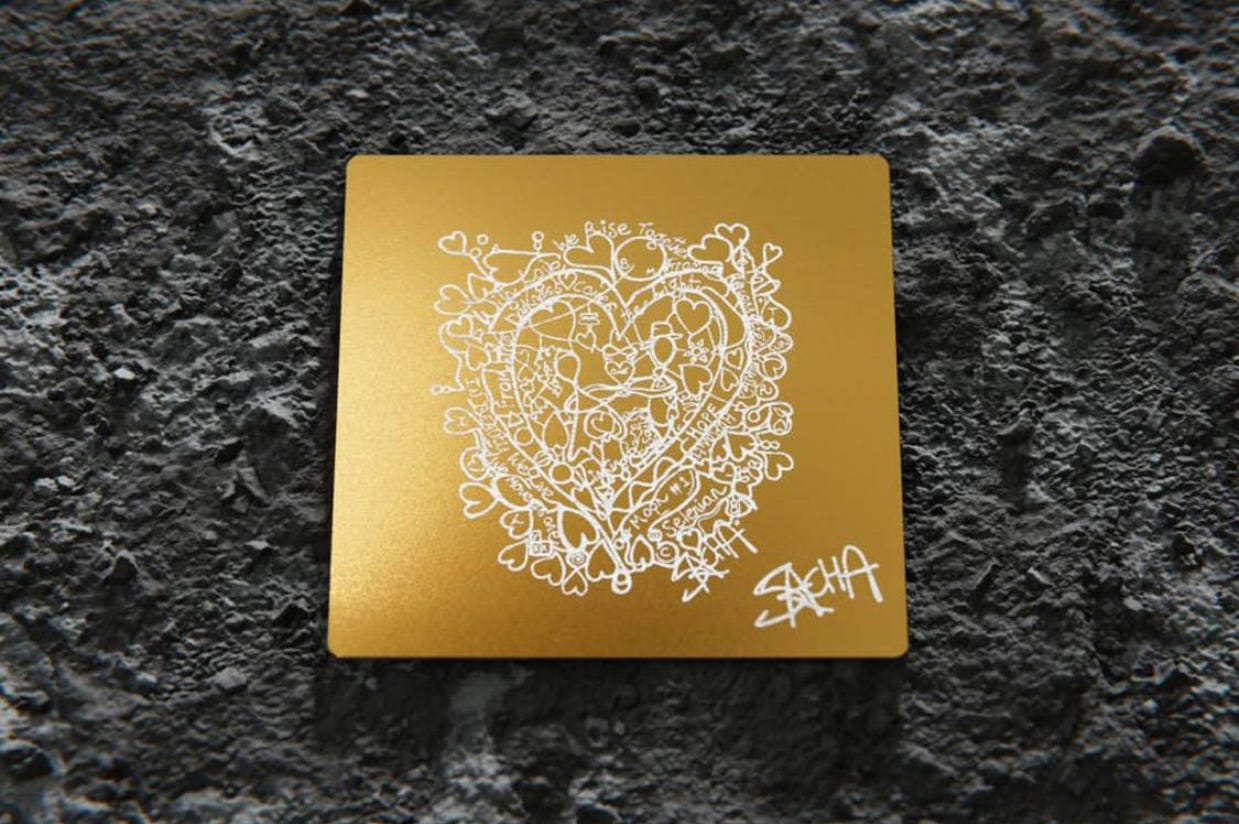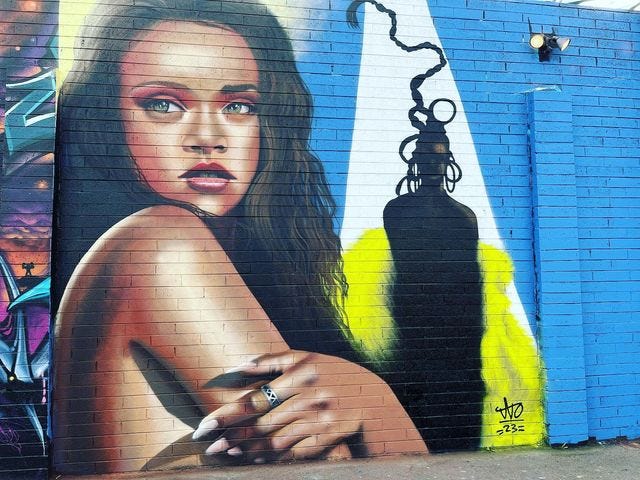Hey guys, it's Hunter. I'm just recording in my phone right now. This isn't a podcast, no production, no editing, just me and my voice notes. Whenever you write a story that's 600-800 words, there's a lot that gets left on the cutting room floor, a lot of stray thoughts that don't make it into the final story, so for my readers, I just want to start giving you guys an inside look at a little more deeper into the story, some things that I wasn't able to write about, some other thoughts I had.
I've been writing a lot about social media lately — first off, people who subscribe for all my stories about logos and fonts, I promise you we’ll get back to that and if you guys have any stories, if you work in the design space, political design, have any story ideas, just know I'm always open to talking more about that — but social media has been changing a lot and it plays such a big role in digital politics and political communication and people who work in the space are really trying to figure out what comes next. You know, there's no guarantee that the situation we're in today with social media is where we're going to be come Election Day 2024. There's a lot changing and so I've been writing a lot about that.
One interview that I had that I haven't written about yet, it was with this researcher at the University of Albany. His name is Masahiro Yamamoto and he did research about this idea of “prosumption,” and it’s this concept that social media isn't just about consuming, it's also about producing and that makes it radically different than other forms of media. In the past, you could write a letter to the editor, you could call into C-SPAN, you could comment on a news article, like, prosumption has existed before, but social media has completely blown up the traditional top-down approach.
The thing that's really interesting when I was talking to him about this is prosumption isn't just for people who post content. You could be posting nothing and even while you're doing it you're producing data for the algorithm. It's your search history, it's the post you like, it's the posts you linger on, the stuff you share. That all gets fed back into the algorithm so it can serve you more of what you want. When you start to think about social media that way, it really makes you think about it differently and I think people are really coming to grips with social media as it is now isn't ideal, like, the status quo isn’t ideal. There's a lot of problems with it and how do we fix it?
I did a story a few weeks ago about this concept of bridging and there was a paper with this idea that rather than social media algorithms being driven primarily by engagement they can be driven by bridging concepts, things that bring people together. So if there's a piece of content and it gets liked by people with different viewpoints that would be higher in people's feeds, in the algorithm. And what I really appreciated about the paper about bridging is they talked about all the downfalls like it's so easy in theory to say, oh, yeah, let's just do this, it’ll fix everything but they really talked about, the authors of the paper, talked about how this could make social media less engaging and they even point, they argued, they said destructive conflict is an important driver of social change, so reducing destructive conflict to limit the potential for such change and so they're looking at the drawbacks. You can say it's all sunshine and rainbows if we make social media stuff that people people agree on and like but you know, they were able to really talk about there are issues with this. How do we get around it? But but the main point was they’re like our social spaces shouldn't default to being divisive and I think that's one thing that people really see with social media. It really promotes a lot of stuff that that divides people.
Speaking as a journalist, that’s something that I've seen. The Washington Post did a story last September and they were looking at different political influencers who were able to grow their audience after the 2020 election by spreading disinformation and if you're telling people what they want to hear, you can find an audience for that. You think back to the election, Fox News was the first to report Biden won Arizona, they called the election for Biden. If you're not getting this message and this narrative you want to hear, you can find people who are willing to tell you what they want to hear. Social media right now as it works, it rewards that kind of behavior and it's easy to see that across politics, but at the same time like I think you can understand how how people, there's fears about the political influence on algorithms and I think that's a conversation that a lot of people are concerned about.
But I think it's really important to have an honest conversation about that because when we talk about, like, it's so much of the conversation around political censorship on the right recently, like, it comes down to Trump being banned. He's recently been unbanned, but those original bans, it wasn't it wasn't as if he was banned for, like, saying he believes more power should go from the federal government to the state government or he believes in lower taxes, like, he wasn't banned because he was conservative, he was banned for violating the terms of service of these platforms. Twitter, their explanation was they banned him at the risk of further incitement of violence. They have a policy in their terms of service about glorification of violence. And so I think obviously as a U.S. president getting banned, that that has a lot of political implications, and people are like, well if it can happen to Trump it can happen to anyone, but I think it kind of misses the point of why he was banned in the first place.
He's been let back on to Meta’s platforms, back onto Twitter. He hasn't posted yet. But if you look at what he's posting on Truth Social, like, man, the guy hasn't changed. He's retweeting people who write calls to violence. In December, he called for terminating parts of the Constitution. I just think we're having this conversation, we're kind of throwing around this idea, oh, we're censoring conservatives, but it's not as if Trump was banned for anything that has anything to do with traditional conservatism.
But I also think when we have conversations about politics and social media the people who are posting most about politics are the most partisan, you know, it's not moderates and centrists and conservative Democrats and liberal Republicans who are posting. It's people furthest out on the edge and as I've been writing a lot about politics and social media I've been thinking a lot about the parallels to other things too, like, you talk about influencers whether it's like mommy bloggers who present this picture perfect life that isn't a reality or bodybuilders who are pumped up on steroids and PEDs, and it's like these are the people who are posting and I think it kind of gives — whether it's politics or body image — it gives people a twisted view because you're only seeing the people who post the most. There's always kind of argument, like, Twitter isn’t real, social media isn't real. It obviously shows us views of the world, but it paints an incomplete picture because not everyone is posting. Everyone is producing for the algorithm whether or not they're posting, but the people are posting don't necessarily represent the average person and I think that that that's really important when you're considering politics.
I've interviewed a lot of people a lot smarter than me about this and I always ask how do you think we can make social media healthier? And you know, I mean, that's the million dollar question. In theory there's so many things you can do. My interview with Masahiro, what he said “I think social media platforms need to be socially politically more responsible instead of just pursuing their own interests,” and, like, honestly like 100%. There's this initiative called Rebuild Local News and they're aiming to provide billions of dollars to rebuild local newsroom across the country and for people who pay attention to what's been going on for years now in the media industry is local news has been dying, newspapers are dying, and to fill that void is social media. People get their news from social media. It's more nationalized. Anyway, this initiative, one of their funders is Microsoft, the parent company of LinkedIn, and I'm like, man, wouldn't that be great if you also had Meta donating to that and Twitter and Reddit. Local news is it's less partisan. It's delivering news that's closer to home. It's delivered by journalists who don't live far away in D.C. in New York or L.A., they're people's neighbors. I as a journalist, this is obviously something that I'm really attuned to, but I think if social media did more to support local news to support users, be more civically engaged, I think that would go such a long way.
We'll see how social media plays out over the next year and a half. We have Supreme Court cases coming down the pike. We have changes in algorithms, who knows if TikTok’s going to be banned, like, there's so many question marks right now, but I really think at the end of the day, if these companies took more responsibility civically and socially, it would go a long way to creating a healthier social media ecosystem. So yeah, those are just some thoughts I've had. I'd love to hear what you guys think and thanks so much for reading. I'll talk to you later. Bye.
Have you seen this?
The first official art on the moon is scheduled to launch in March. Artist Sacha Jafri’s “We Rise Together — By the Light of the Moon” is set to blast off from the Kennedy Space Center the first week of March and 88 NFTs of the artwork will go on sale. The proceeds from the NFT sales are going to be donated to causes related to health, education, sustainability, and equality. [Hypebeast]
Shepard Fairey did former L.A. Mayor Eric Garcetti’s official portrait. “To me, Shepard, you are the metaphor of this city too, because you’re still that graffiti artist, that rule breaker who doesn’t ask for permission, but you also know how to come indoors,” Garcetti said at the unveiling ceremony. [Los Angeles Magazine]
There’s a Rihanna mural up in Phoenix now ahead of her Super Bowl halftime show. The mural was painted by artist Tato Caraveo on the side of a Phoenix record shop.
Why the internet as we know it could be over by the end of the summer. Could the U.S. be headed for an over-filtered balkanized splinternet? Nine men and women in robes could decide. [𝘠𝘌𝘓𝘓𝘖]











How I think social media companies could improve